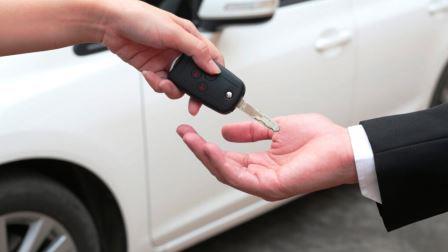Being upside down on a car loan – owing more than the car’s actual value – can be a stressful situation. When faced with financial hardship and the inability to keep up with payments, many car owners worry about involuntary repossession, where the lender forcefully takes back the vehicle. However, there’s an alternative: voluntary automobile repossession.
What is Voluntary Automobile Repossession?
Voluntary automobile repossession, also known as voluntary surrender, occurs when a borrower, unable to make car loan payments, initiates the process of returning the car to the lender. This differs from involuntary repossession, where the lender takes legal action and hires a repossession company to seize the vehicle.
Should You Consider Voluntary Repossession?
Deciding on voluntary automobile repossession is a significant financial decision. Here are some factors to consider:
- Financial Situation: Is your financial hardship temporary or long-term? Can you realistically catch up on missed payments soon?
- Loan Status: Are you significantly behind on payments, or just a few months late? Knowing the severity of your delinquency can help assess the urgency of action.
- Alternatives: Have you explored other options like loan modification, refinancing, or selling the car privately? Weighing these alternatives can help you choose the best course of
What Happens When You Voluntarily Surrender Your Car
The process of voluntary automobile repossession typically involves the following steps:
- Contact Your Lender: Be proactive and reach out to your lender’s customer service department. Explain your financial situation and express your interest in voluntary surrender.
- Negotiate the Terms: Discuss the specifics of the surrender with your lender. This might include details like the car’s return location, paperwork involved, and potential fees. You could also try negotiating a settlement to reduce the amount owed on the loan.
- Return the Vehicle: Once the terms are agreed upon, return the car to the designated location in good condition, with all keys and ownership documents.
Important Considerations for Voluntary Repossession
- Credit Score Impact: Both voluntary and involuntary repossession will negatively impact your credit score for up to seven years. However, initiating voluntary repossession demonstrates communication and willingness to cooperate with the lender, which might be seen favorably by some creditors in the future.
- Deficiency Balance: Even with voluntary repossession, you might still be responsible for the “deficiency balance.” This is the difference between the outstanding loan amount and the car’s selling price at auction (where lenders typically sell repossessed vehicles). You’ll be liable to pay this remaining balance, along with any repossession fees and late charges.
- Explore Alternatives: Before resorting to voluntary repossession, explore other options:
- Loan Modification: Negotiate with your lender to extend the loan term or lower the monthly payments, making them more manageable.
- Refinance: If you have good credit, you might be able to refinance the loan with a new lender at a lower interest rate, reducing your monthly payments.
- Sell the Car Privately: Selling the car yourself could potentially fetch a better price than an auction, minimizing the deficiency balance.
Voluntary Repossession with No Late Payments
In rare cases, a borrower might consider voluntary repossession even with a clean payment history. This could be due to:
- Change in Circumstances: A sudden job loss or unexpected medical bills could leave you unable to afford the car payment despite being current.
- Upside-Down Loan: If you owe significantly more on the car than its worth, voluntary repossession might be a way to cut your losses and walk away from the loan (though you’d still be responsible for the deficiency balance).
Seeking Help Before Voluntary Repossession
Financial hardship can be overwhelming, but there are resources available to help. Consider these options before resorting to voluntary automobile repossession:
- Credit Counseling Agencies: Non-profit credit counseling agencies can assist with budgeting, debt management, and negotiating with lenders.
- Government Assistance Programs: Depending on your income and situation, you might qualify for government assistance programs that can help with car payments or transportation needs.
Conclusion
Voluntary automobile repossession can be a difficult but sometimes necessary step in challenging financial times. Weighing the pros and cons, exploring alternatives, and seeking professional help when needed can guide you towards the best decision for your situation. Remember, open communication with your lender is crucial throughout the process.
